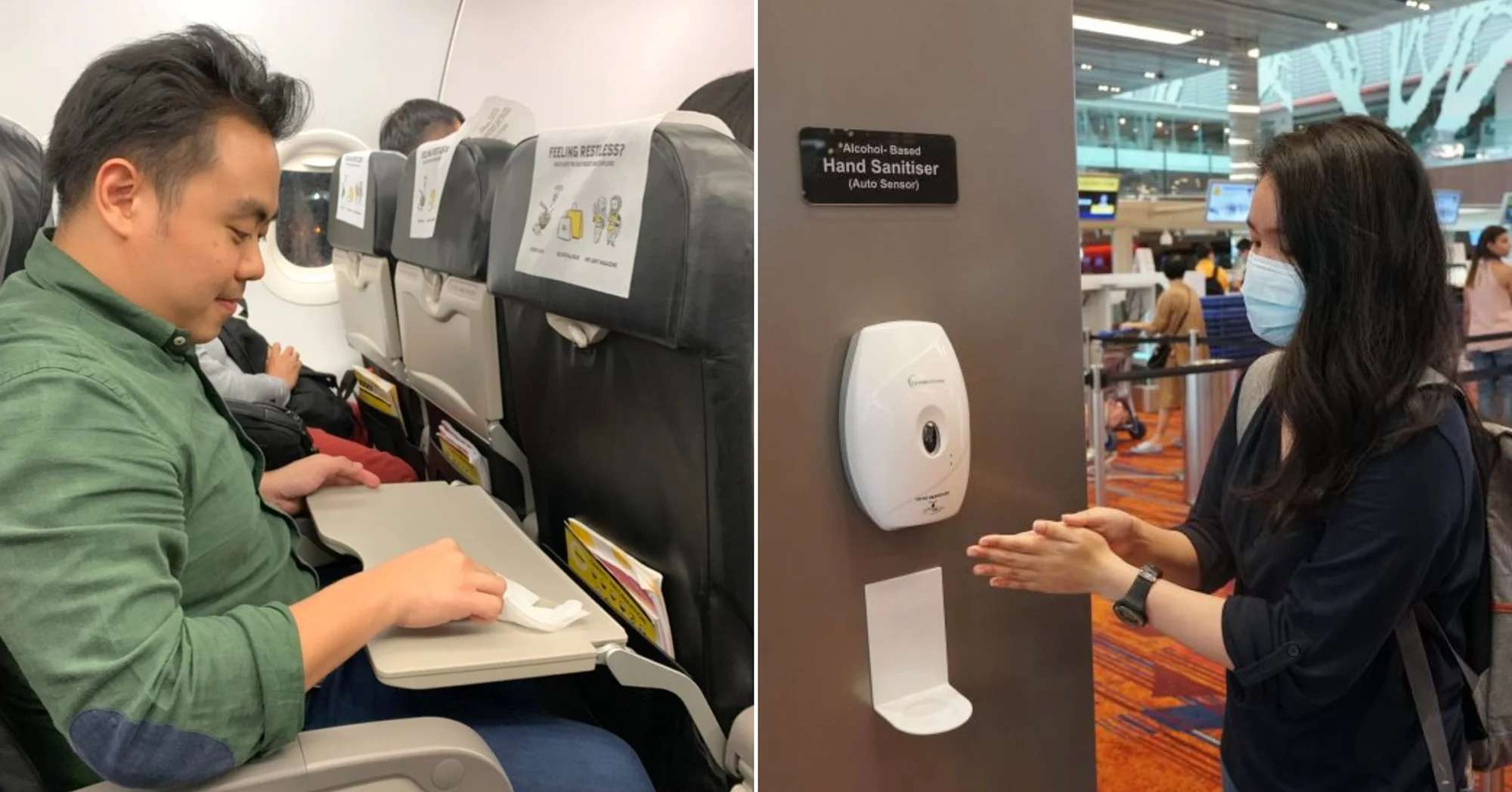No matter where we are, practicing good hand hygiene is important now more than ever. However, with more countries around the world easing on travel restrictions, there's no doubt that we'll continue to stay hygienic at the airport, public transport, sightseeing spots, and more if travelling is possible next year.
Since remembering the best practices of hand hygiene is essential, here are some hand hygiene tips to know, so you'll be fully prepared when it's finally safe to travel again.
1. Wash your hands with soap and water

Your first practice of hand hygiene should always be washing your hands with soap and water for at least 20 seconds, or to the tune of 2 Happy Birthday songs. A regular hand wash can prevent you from transferring germs and viruses to other people and objects as well as protecting you from it.

Credit: World Health Organisation
The World Health Organisation (WHO) has a complete guide on how to wash your hands properly to ensure your palm, fingers, and nails are thoroughly clean. Practice these steps wherever you are, especially when you're travelling with someone with a higher risk of being infected by COVID-19 such as older adults with underlying medical conditions including cardiovascular disease, diabetes, and chronic respiratory disease.
2. Avoid touching your face, nose and mouth

This step may be easier said than done, but it's important to avoid hand-to-face contact as much as possible when you're travelling. According to WHO, COVID-19 virus can be easily spread through saliva droplets and nose discharge when an infected person sneezes or coughs. When you're in contact with an infected surface and touch your face, nose and mouth afterwards, you'll put yourself at risk of getting the virus or transferring it to other objects.
3. Avoid handshakes

It may be strange not to salam or greet someone with a handshake when you meet a new friend while travelling, but the pandemic has definitely changed the way we greet one another. While maintaining a one-meter distance with your friend, you can smile and wave or keep both hands to yourself to limit close contact with them.
4. Use hand sanitiser when you're on the go

While it's widely recommended to wash your hands with soap and water, it can be tough to search for a water tap when you're on the move. Therefore, it's best to bring a small hand sanitiser, especially when you're visiting public places such as theme parks, restaurants, train station, and more.
The Centers for Disease Control and Prevention (CDC) recommends that you use alcohol-based hand rub with greater than 60% ethanol and 70% isopropanol if your hands are not visibly dirty.
Similar to the handwashing techniques, you need to rub your hands and fingers between 20 and 30 seconds to make sure your hand is fully clean and sanitised. Remember that washing your hands with soap and water is still preferred if your hands are visibly dirty or after using the toilet.
5. Be mindful of the high hand contact surfaces in public places

When travelling, it's best to be mindful of the high hand contact surfaces when you're taking a flight from the airport, commuting on public buses or visiting various sightseeing spots. That's why a hand sanitiser will come in handy in times like these!

While you can sanitise your hands on the go, you can also bring along antibacterial wipes, preferably with at least 70% alcohol as recommended by CDC.
The pandemic has definitely made hygiene a top priority, especially for airlines where the regular disinfection will allow you to travel safely and comfortably. If you need to wipe down frequently-touched areas during the flight, you can focus on your tray table, armrests and entertainment screen when you board your plane.
6. Educate others about these hand hygiene practices wherever possible

Lastly, educate others about these hand hygiene practices wherever possible, especially to your family or friends who don't have access to this information online. Teach your children how to properly wash their hands before going on a family trip and the same goes to your elderly parents.
While it's uncertain when we'll be able to travel safely again, it's good to remember these hand hygiene practices so you'll be prepared when the time comes. If you're looking for more ways to practice good hygiene when you're out and about, we hope you'll find these articles useful!


